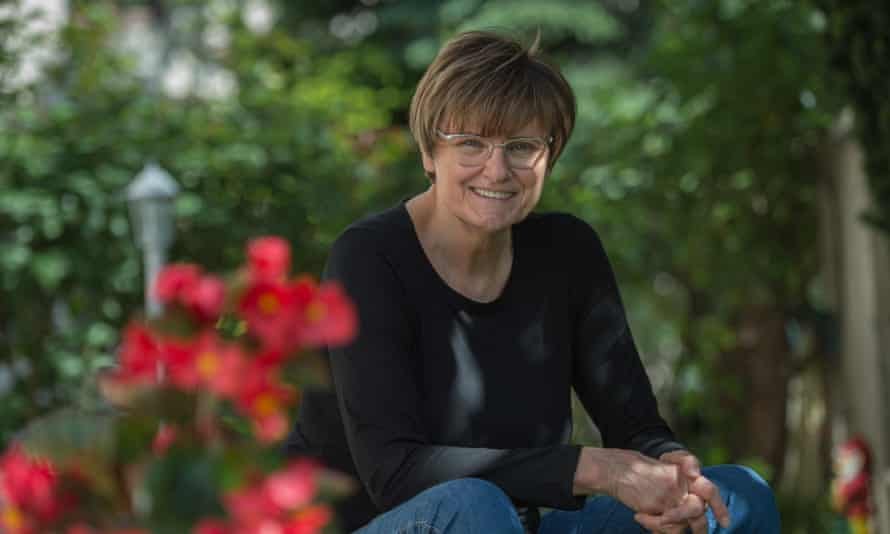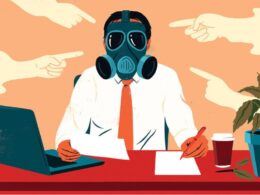Prof Katalin Karikó of BioNTech says she endured decades of scepticism over her work on mRNA vaccines
The Guardian
Ian Sample Science editor
Fri 10 Sep 2021
Scientists’ egos are key barrier to progress, says Covid vaccine pioneer
Scientists would make swifter progress in solving the world’s problems if they learned to put their egos aside and collaborate better, according to the leading researcher behind the Pfizer/BioNTech Covid vaccine.
Prof Katalin Karikó, the senior vice-president for RNA protein replacement therapies at BioNTech in Germany, endured decades of scepticism over her work and was demoted and finally kicked out of her lab while developing the technology that made the Pfizer and Moderna vaccines possible.
The vaccines Karikó helped to develop smuggle genetic material called mRNA into cells so they can churn out the coronavirus spike protein and prime the immune system to fight the disease.
On Thursday, she was honoured with a $3m (£2.2m) Breakthrough prize for life sciences along with her colleague Prof Drew Weissman at the University of Pennsylvania.
“If so many people who are in a certain field would come together in a room and forget their names, their egos, their titles, and just think, they would come up with so many solutions for so many things,
but all these titles and whatever get in the way,” Karikó told the Guardian.
“If so many people who are in a certain field would come together in a room and forget their names, their egos, their titles, and just think, they would come up with so many solutions for so many things,
but all these titles and whatever get in the way,

Karikó grew up in Kisújszállás, 150km east of Budapest. Photograph: Csilla Cseke/EPA
“I always thought who cares? In 100 years nobody will know my name. But titles, promotions, older men, power, it all gets in the way,” she said.
It is not exclusively men that prioritise power over progress, she concedes, but “they have had more time to practise wielding power”.
It is not exclusively men that prioritise power over progress, she concedes, but “they have had more time to practise wielding power”.
Over the course of the pandemic, Covid vaccines have saved hundreds of thousands of lives.
New mRNA-based therapies in the pipeline aim to produce antibodies to viruses directly so protection arises immediately rather than taking weeks to build up.
The immunity will be shorter-lived than that gained from a vaccine, but could protect doctors from outbreaks of new emerging diseases.
Ultimately, she envisages people having freezers of mRNAs at home to help treat wounds, burns and other ailments.
Karikó grew up in Kisújszállás, 150km (93 miles) east of Budapest.
Her family lived in a single room with a reed roof, no running water, no refrigerator and no television. She studied hard and at 14 came third in a national biology competition.
She went on to university in Hungary, gained a postdoc, and then sold her car on the illegal market, sewed the money into her daughter’s teddy bear and moved the family to the US.
Her first position was a postdoc at Temple University in Philadelphia, which earned her $17,000 a year to support the family. “I know how to have a shoestring budget and not spend more than $30 a week on food for the family. That was our limit,” she said. After falling out with her boss, she moved to the University of Pennsylvania.
While mRNA therapies had clear promise, enthusiasm for the approach collapsed in the face of multiple failures.
- A major problem was that mRNAs triggered severe immune reactions when smuggled into cells. In 1995, Karikó was diagnosed with cancer and the same week says she was given an ultimatum by the university: either drop the mRNA work or lose her prestigious faculty position.
- She opted for the demotion — and a substantial pay cut — so she could carry on the research.
She opted for the demotion — and a substantial pay cut — so she could carry on the research.
Two years later, she met Weissman. Together they discovered how to get mRNA into cells without provoking severe immune reactions: the approach became the basis for the Pfizer and Moderna vaccines.
“People love to hate big pharma, but these people are so smart,” she said.
“When I went from academia to a company, they don’t care how many committees you are on, how many papers you have. What counts is that you have a product that has an effect. The ego is wiped out. It is so much better.”
“When I went from academia to a company, they don’t care how many committees you are on, how many papers you have.
What counts is that you have a product that has an effect.
The ego is wiped out. It is so much better.”
Karikó said she remained optimistic through the upheavals of her career by looking for the positives in every situation.
Karikó said she remained optimistic through the upheavals of her career by looking for the positives in every situation.
“You have to focus on what you can do. A lot of people get distracted and say, ‘oh he works less’, or ‘he got promoted’, or ‘he has more money’, and they immediately take their eye off what is important.
They are focusing on things they cannot change.
You work because you want to do the best you can do.
If you think, ‘oh, I want to please my boss’, or somebody, there are reactions you cannot control, and that’s it, you’re already disappointed.
“If you are fired from your job you don’t panic, you think I’ll get a new opportunity. Everything has a positive, you have to find it.”
“If you are fired from your job you don’t panic, you think I’ll get a new opportunity. Everything has a positive, you have to find it.”
Her share of the Breakthrough prize means she is $1.5m better off than before. Though she was delighted, it was not the highlight of her year, she said. This month, the staff and residents of a residential care facility in New York got vaccinated with the Pfizer jab and declared 2 September Katalin Karikó Appreciation Day. A week later, the home had a Covid outbreak. Seventy tested positive but nobody died.
“They were so happy. Thanks to the vaccine, they are still there.
For me, no award, no money you can put in my hand, could be worth more than that.”
“They were so happy. Thanks to the vaccine, they are still there.
For me, no award, no money you can put in my hand, could be worth more than that.”
Originally published at https://www.theguardian.com on September 10, 2021.












